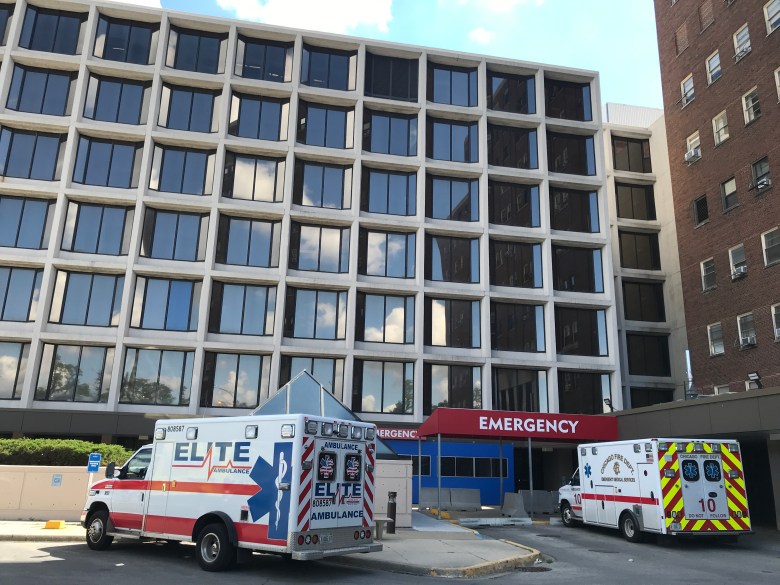NORTH LAWNDALE — A $100,000 grant will help outreach workers at Mount Sinai Hospital better identify patients experiencing food insecurity and connect them with local services.
The grant from the Cigna Foundation supports community health workers through the Sinai Urban Health Institute, according to hospital officials.
The funding will expand the workers’ ability to screen emergency room patients for more than just their medical needs, helping them find food resources and nutrition programs and follow up to ensure they take advantage of those opportunities.
“Our [community health workers] will break down barriers to accessing resources, including working through issues of embarrassment that often keep people from accessing emergency food resources,” said Stacy Ignoffo, director of community health innovations at the Sinai health institute.
Mount Sinai Hospital is a safety net hospital in North Lawndale, which is considered by many to be a food desert. According to the health system’s data, 37 percent of households in the area are food insecure.

Like much of the West Side, the area lacks affordable options for and access to nutritious food. Many residents must travel a mile or more to grocery stores and supermarkets.
“It’s basically little corner stores, mostly liquor stores. It’s not a place where they can go to buy vegetables, fruits, healthy juices,” said community health worker Madeline Woodberry.
The grant also means Sinai community workers can continue using a resource referral software, NowPow, which the hospital would not have been able to afford otherwise.
The software allows Sinai to build a database of services and resources in the area to address the specific needs of patients. Community health workers can use the technology to find grocery stores, food pantries and nutrition services closest to patients in need.
“Especially now due to COVID-19, it’s so very hard to get a patient into some of these food banks, because they’re basically cleared out right about now. So we really need to pay for the NowPow,” Woodbury said.
The grant will also pay for the legwork required to find viable food resources for patients. Community health workers need to spend time out in the neighborhood vetting corner stores, markets and food pantries to gauge whether they have nutritious food offerings.
The additional funding may allow them to bring on more workers to hit the streets to make sure residents can get the nutrition they need.
“We go out to the corner stores and when we have referrals for the food pantry, we go out to see what type of food pantries that that we are sending our patients out to,” Woodbury said.
Pascal Sabino is a Report for America corps member covering Austin, North Lawndale and Garfield Park for Block Club Chicago.
Block Club Chicago’s coronavirus coverage is free for all readers. Block Club is an independent, 501(c)(3), journalist-run newsroom.
Subscribe to Block Club Chicago. Every dime we make funds reporting from Chicago’s neighborhoods.
Already subscribe? Click here to support Block Club with a tax-deductible donation.


Comments are closed.